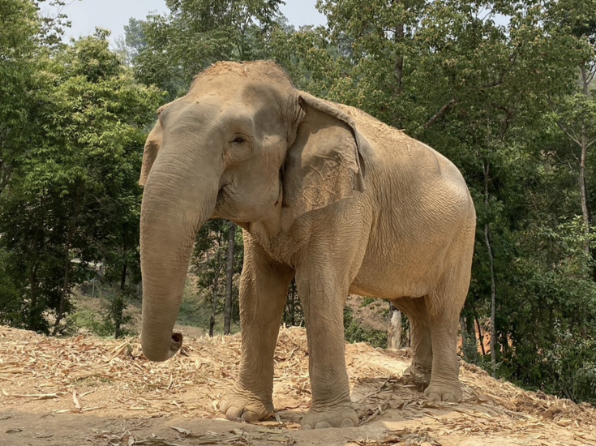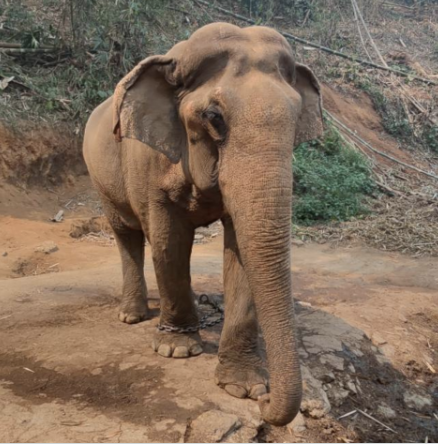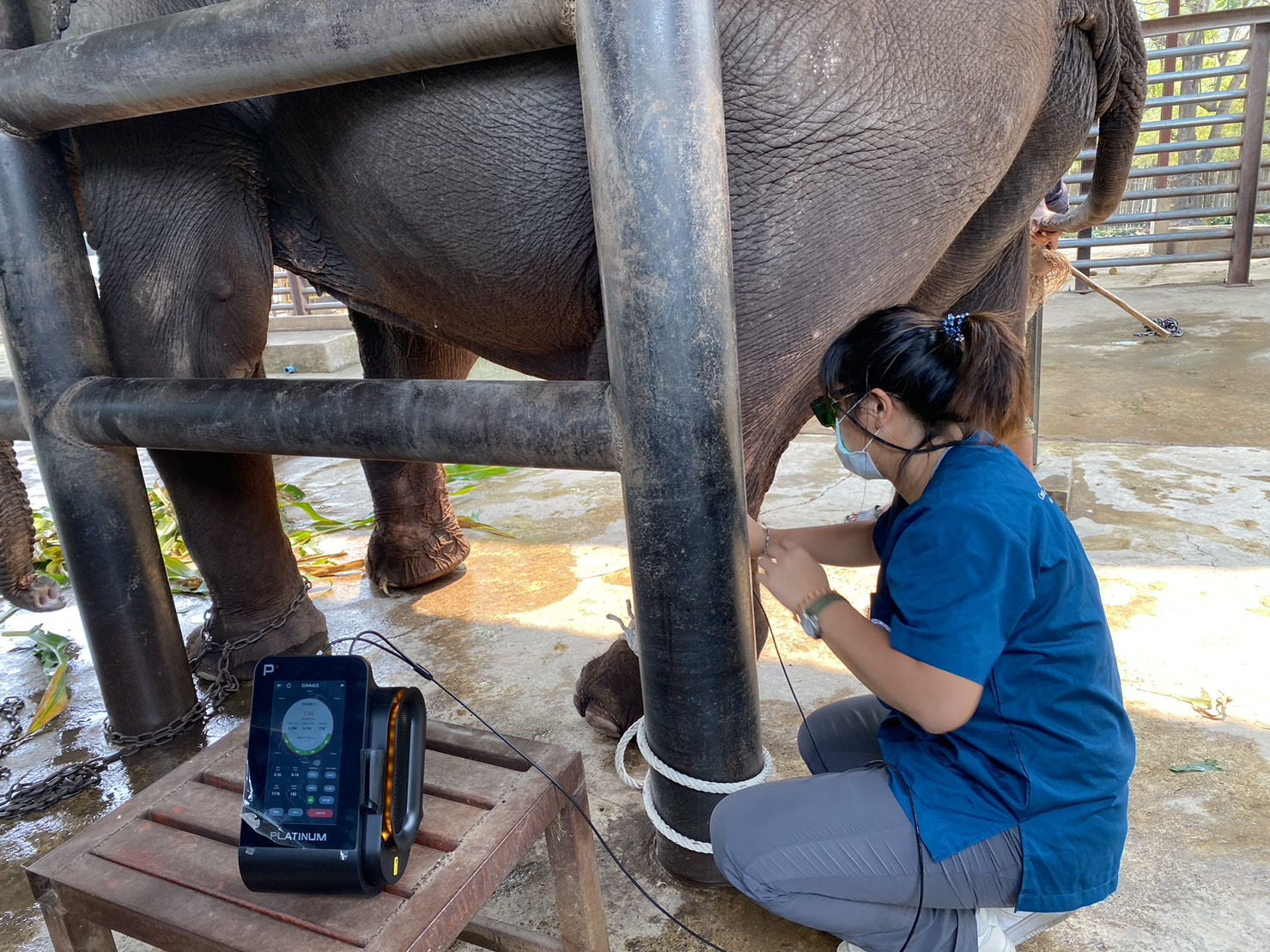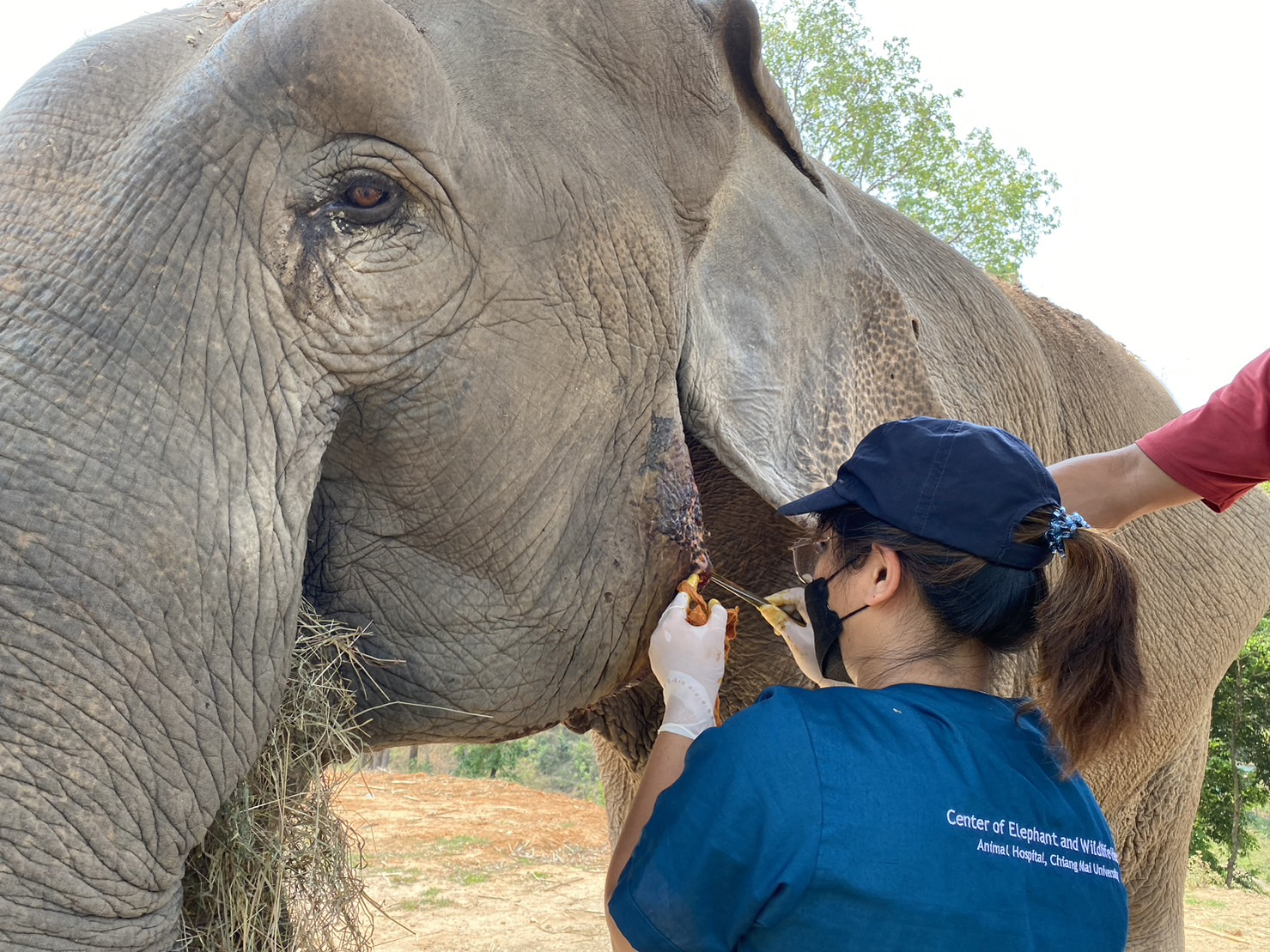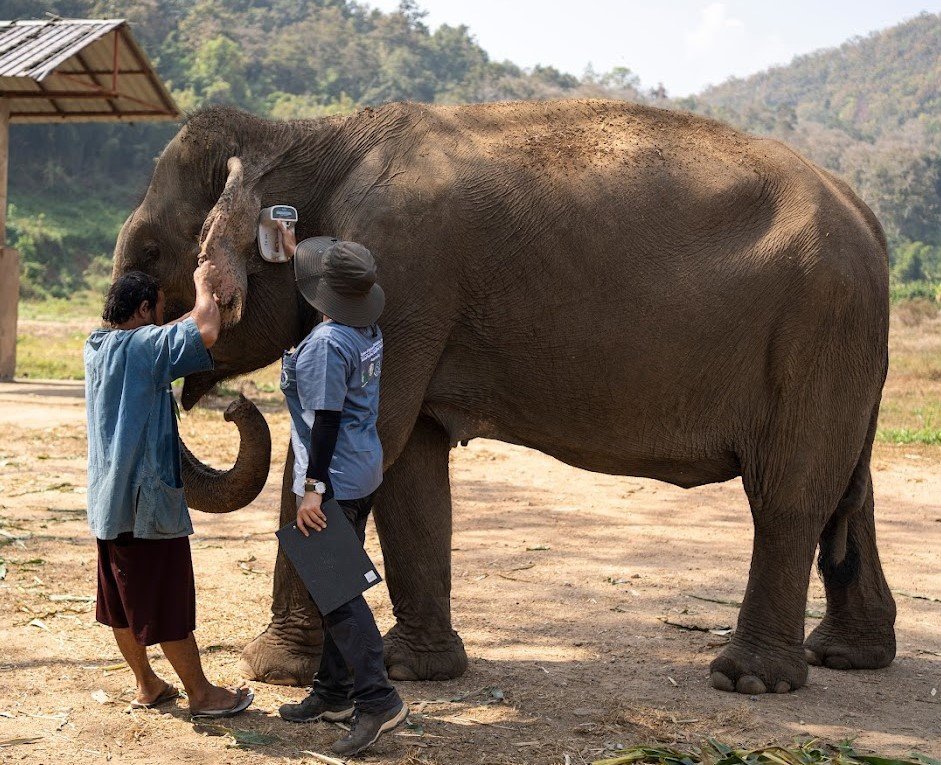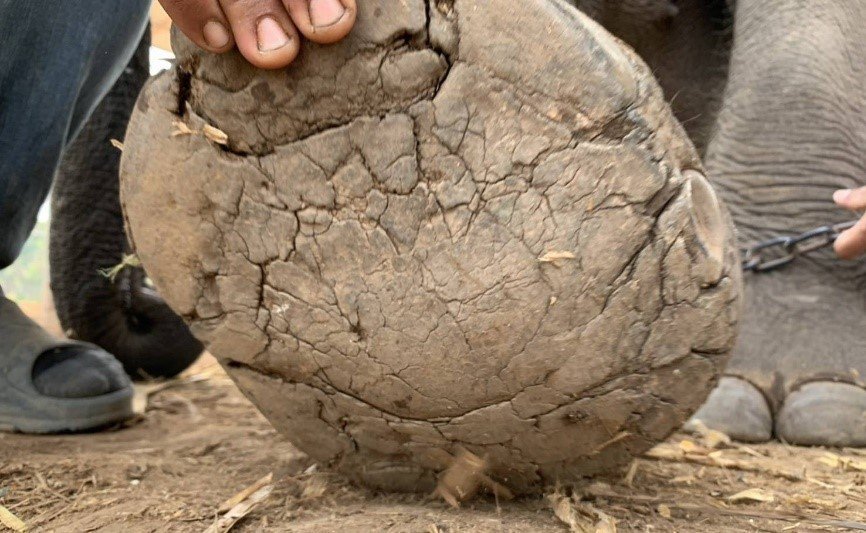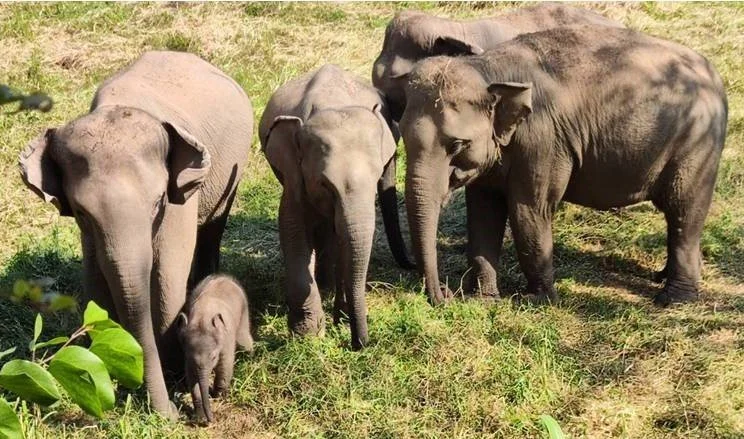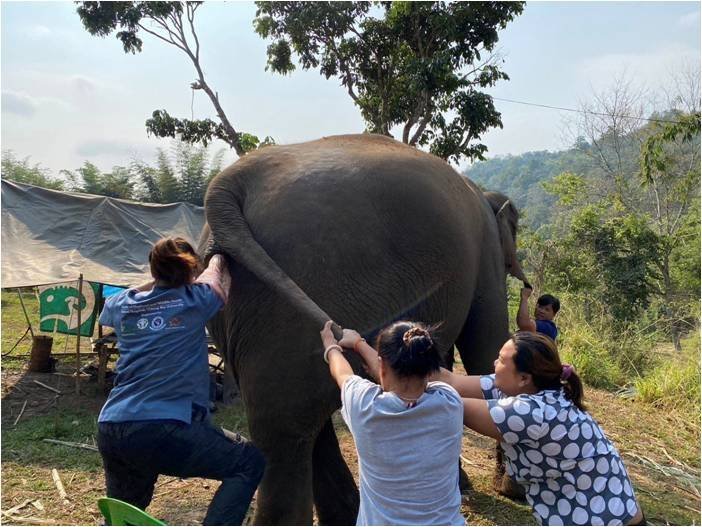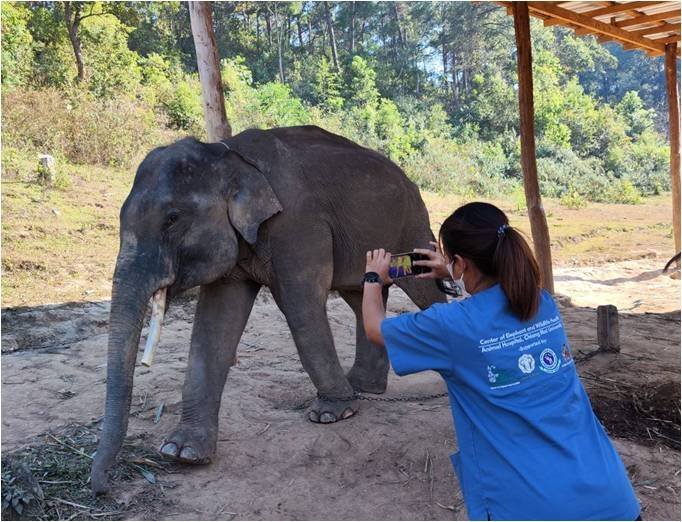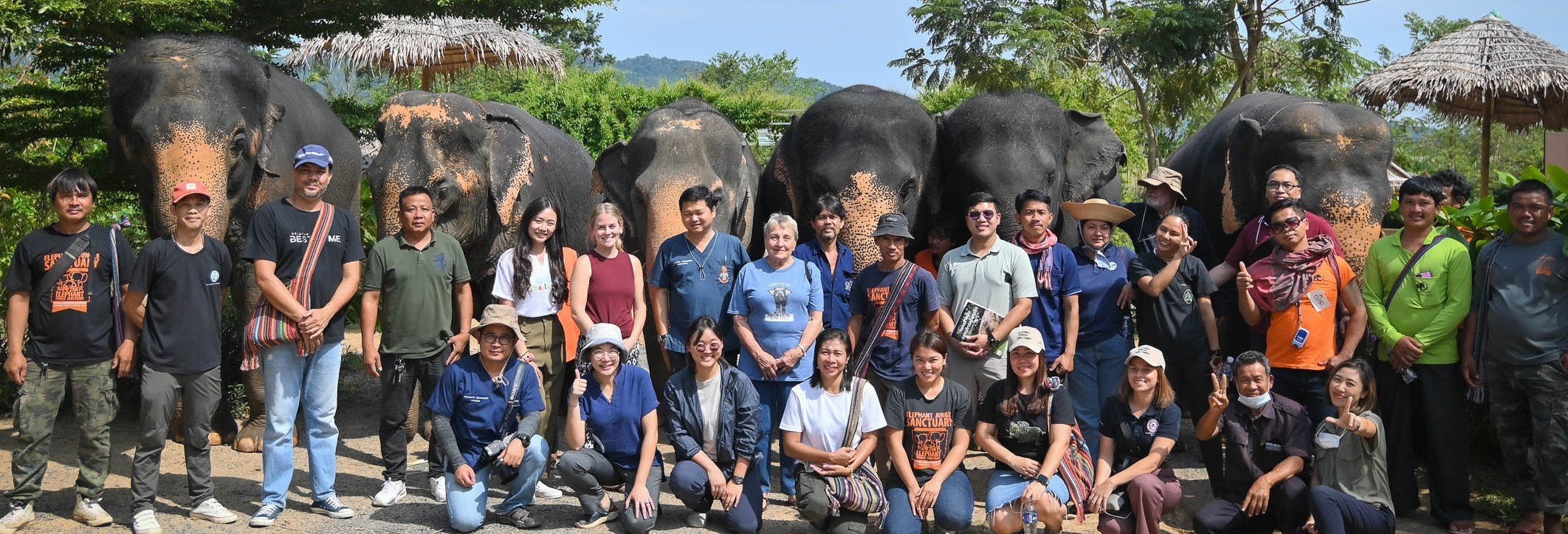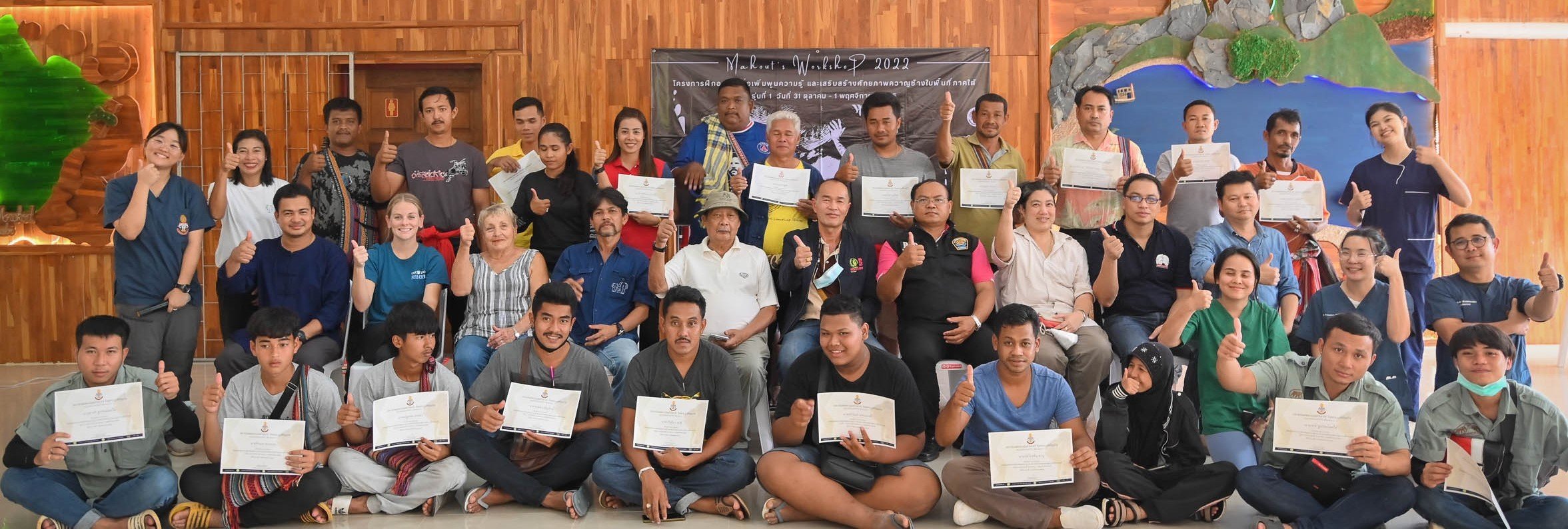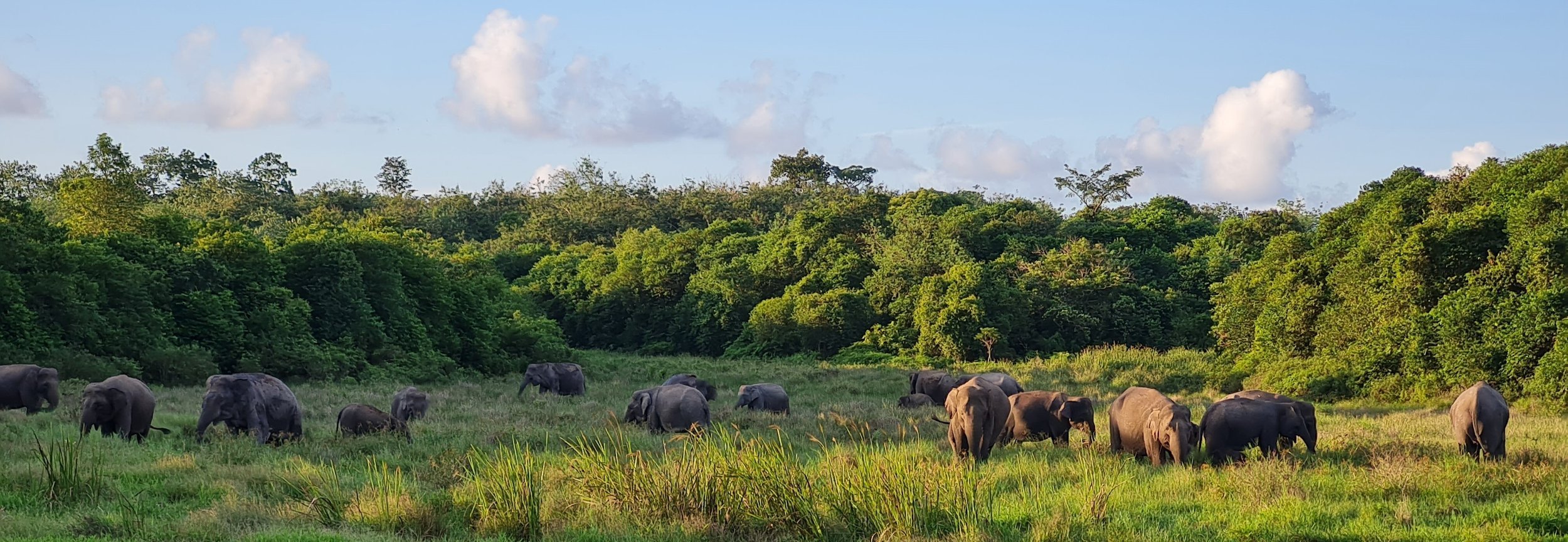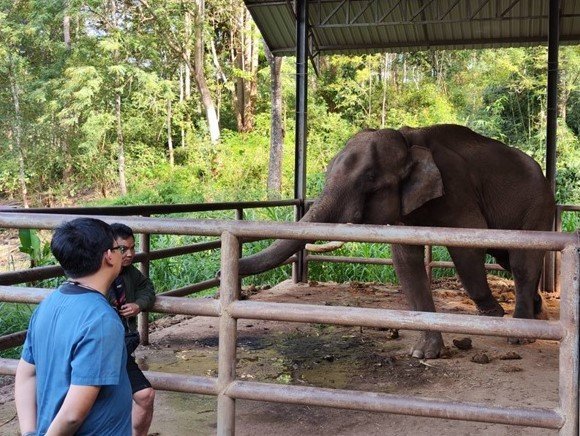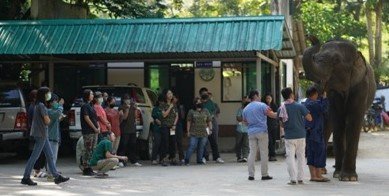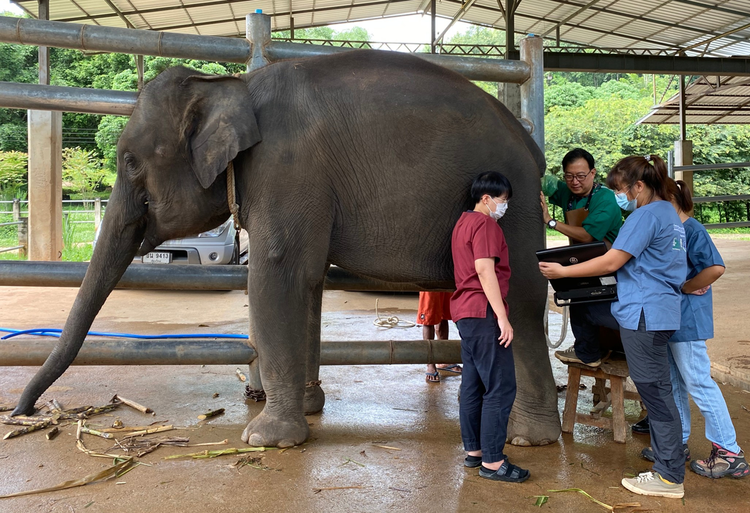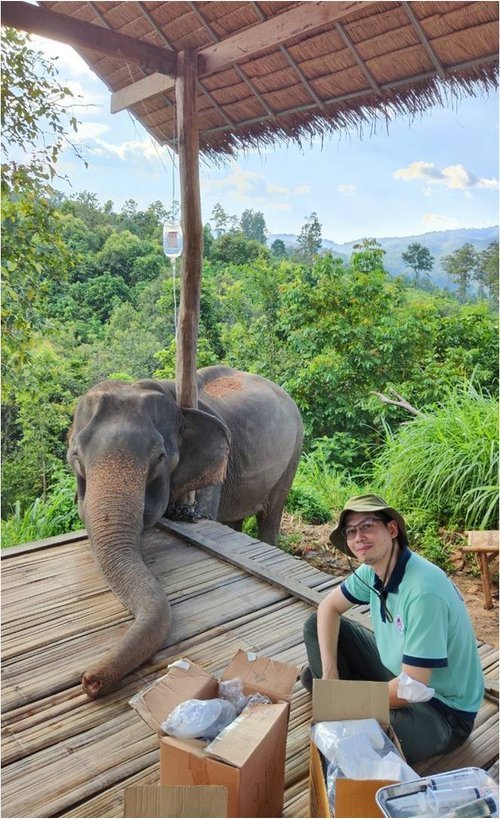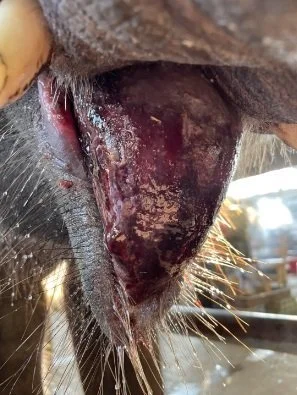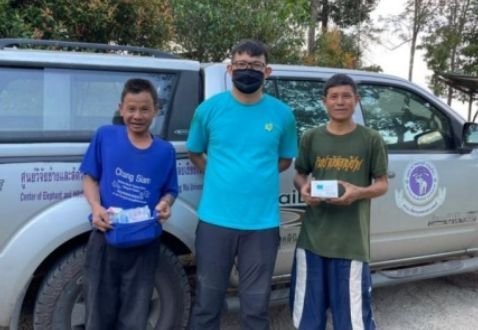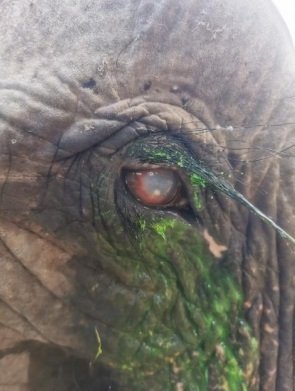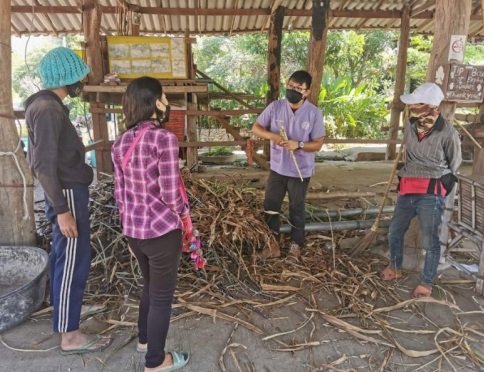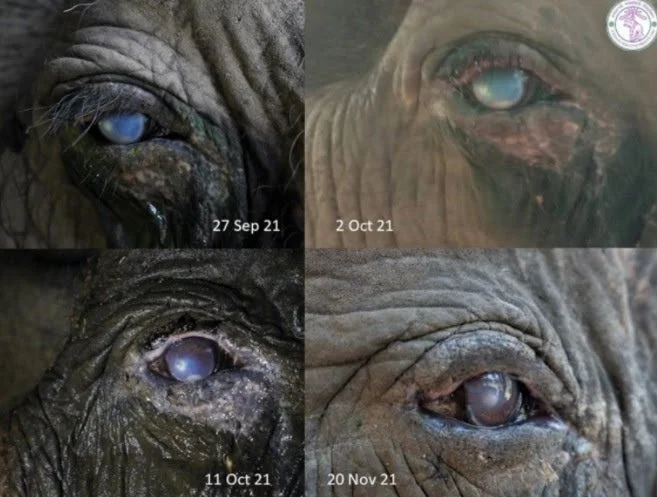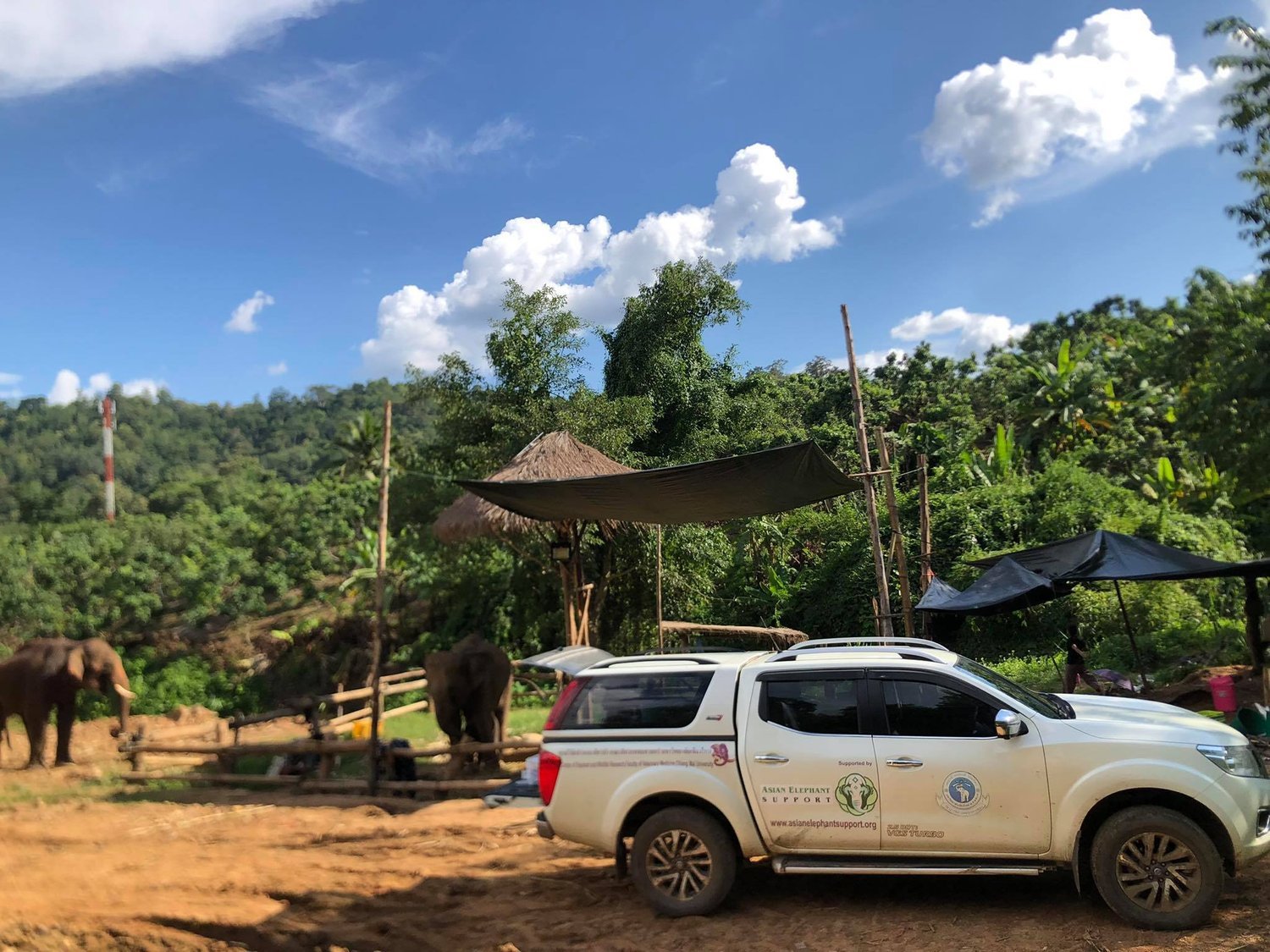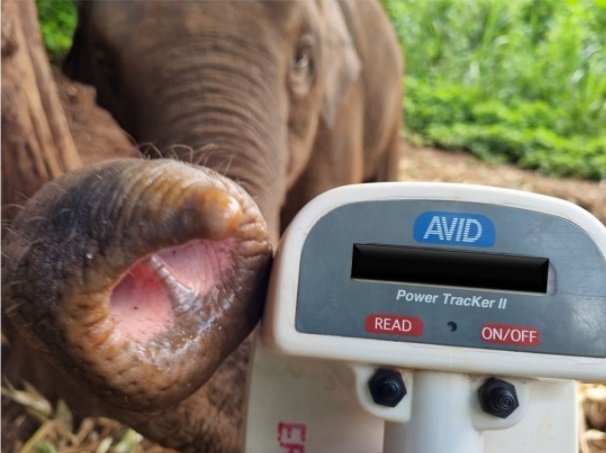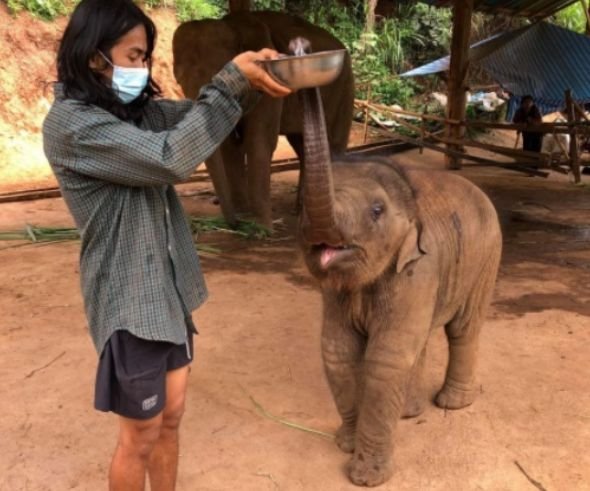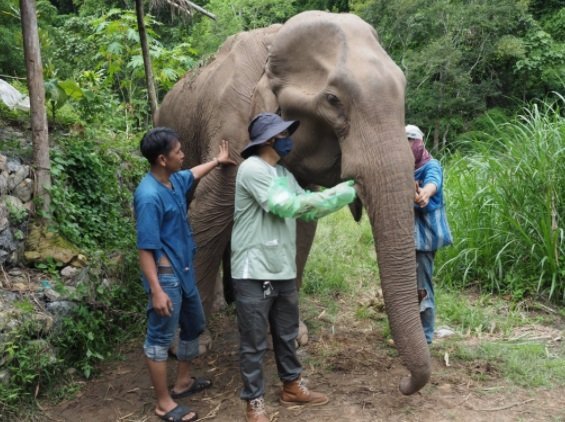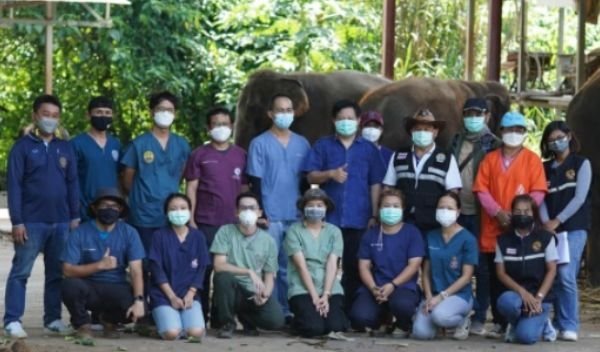The Chiang Mai University Mobile Vet Clinic crew collaborated with the Thai Elephant Conservation Center (TECC) several times throughout the month of June. The first was on June 10th when Dr. Eye and other Mobile Vet Clinic staff once again teamed up with the veterinarians from the TECC to put a cast on an elephant whom they casted about two weeks prior to mend a left limb broken in an elephant attack. The exposed wound was worsening since the first cast, and the team administered additional antibiotic medication. Sadly, despite all efforts, the elephant passed away from her injuries. A necropsy (animal autopsy) will be performed to determine the cause of her passing.
TECC and CMU veterinary teams working on casting procedure
Later in the month, Chiang Mai University hosted a group of students from the Long Island University taking an elephant medicine and welfare course. The students were able to take a tour of the Pang La geriatric elephant care center in order to learn more about older elephant care and bulls in musth. They were able to tour the Thai Elephant Conservation Center in Lampang to learn more about elephant medicine and perform an independent procedure. The students were also able to visit a large elephant camp in the Mae Taeng district where the students learned more about elephant nutrition, health and environment.
Long Island University students doing a physical exam
The cases that were seen by the Mobile Vet Clinic in June were mainly located in Mae Wang and Mae Taeng districts. They tended to elephants with ailments ranging from eye problems, skin problems, gastrointestinal distress and foot wounds.
On June 14th, the team visited a young elephant, following up on an eye wound that they had started treating a month earlier. The CMU Team was thrilled to find that the owner had done a great job treating the wound, finding no evidence of lesions. The veterinarians depend highly on elephant owners and mahouts to treat and medicate their young elephants, since they are more difficult to treat due to their activity level.
Young elephant with a healthy eye
Following the eye exam, the Team was then called to an elephant who had stepped on a nail the previous day. The owner of the female elephant had pulled the nail out of the foot pad upon finding it, but he wanted the veterinarians to administer a tetanus vaccine to prevent infection. The Team examined and cleaned the area, flushing the foot pad with hydrogen peroxide, iodine and saline, and left a foot soak solution of potassium permanganate for the owner to perform foot soaks. Overall, the elephant had no swelling around the nail wound, and she was walking normally.
Elephant’s foot pad where nail was found
Next, the Mobile Vet Clinic answered a call regarding a young female elephant with a right tusk that had been broken about four days prior. According to the owner, the elephant likes to use that tusk to strip trees of bark. Upon examination, the veterinary team noticed a foul smell at the tusk site and discovered that the remaining pointed section of tusk was rubbing the soft tissue of the tusk cavity. The cavity was flushed with hydrogen peroxide, washed with saline, and then the elephant was given pain medication. The veterinarians also worked to reduce the sharpness of the remaining tusk fragment. The team followed up three days later and the elephant was doing well, with the swelling down.
Dr. Eye treating the broken tusk of a female elephant
Finally, the team visited an owner who called them for his female elephant with an abscess on her trunk. The abscess is about 1.5 inches in diameter and had ruptured, producing discharge. The veterinarians couldn’t express all the purulent material, so they cleaned the wound and provided topical antibiotic medications to the site. The veterinary team left additional medication with the owner and instructed him to continue treating the wound. They expect the elephant to make a full recovery.
CMU vet treating female elephant’s trunk abscess
To ensure that Dr. Eye and the rest of the Chiang Mai University Mobile Vet Clinic can continue their life saving efforts around Northern Thailand, please make a one-time donation or become a monthly donor by visiting our donor page or “Venmoing” us @AsianElephantSupport. We appreciate your contribution!







